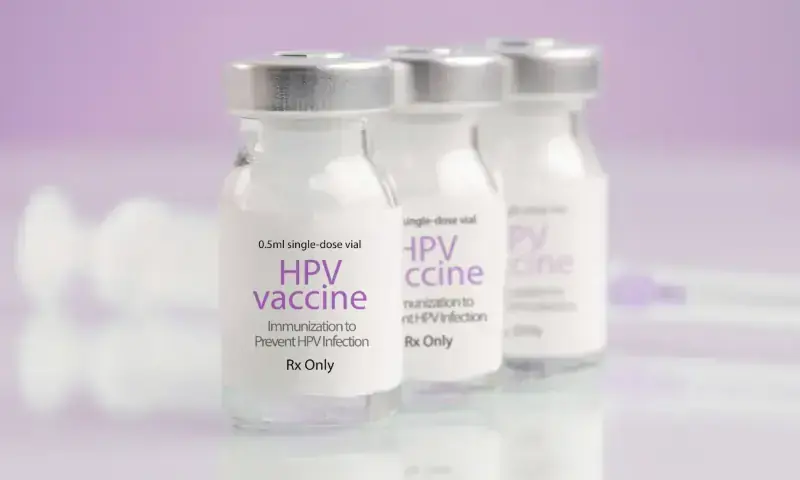HPV Vaccine in Pakistan: Separating Myths from Facts
September 27, 2025
Pakistan has officially introduced the Human Papillomavirus (HPV) vaccine into its national immunisation programme, with the first campaign running from September 15 to 27 across Punjab, Sindh, Islamabad, and Azad Jammu & Kashmir. The move is being welcomed by health experts as a vital step in protecting women’s health — but it has also been accompanied by myths and misinformation circulating on social media.
Here’s what you need to know about the HPV vaccine and why it matters.
Why is the HPV vaccine important?
HPV is a common virus that can cause several types of cancers, including cervical, vulvar, vaginal, anal, and throat cancers. According to an Aga Khan University study, more than 80% of sexually active people will contract HPV at some point in their lives.
Globally, over 660,000 new cervical cancer cases are reported each year, and more than 95% are linked to HPV. Sadly, every two minutes a woman dies from this preventable disease, with 90% of deaths occurring in low- and middle-income countries.
In Pakistan, around 5,000 new cervical cancer cases are diagnosed annually, with nearly two-thirds resulting in death due to late detection and limited screening facilities.
What do other countries do?
Pakistan is now among 150 countries — roughly three-quarters of UN member states — that recommend HPV vaccination. Nearly all major Muslim-majority countries, including Indonesia and Iran, have already introduced the vaccine.
-
Indonesia launched its programme in 2016 and now produces the vaccine locally.
-
Iran has offered the vaccine for personal use for nearly two decades and began local production in 2025.
Pakistan is the last South Asian country, apart from Afghanistan, to include HPV vaccination in its national programme.
How effective is the vaccine?
Research shows the HPV vaccine offers up to 90% protection against cervical cancer when given to girls aged 9–14 years. The vaccine works best before or around the start of reproductive life, which is why young girls are the main focus of the programme.
Is it safe?
Yes. The vaccine has been extensively tested and approved worldwide:
-
The US FDA first approved the HPV vaccine in 2006.
-
The World Health Organization (WHO) has prequalified multiple HPV vaccines for quality, safety, and effectiveness.
-
Reported side effects are minimal and rare.
Which vaccine is being used in Pakistan?
Pakistan is administering Cecolin, a single-dose HPV vaccine manufactured in China and supplied through Gavi, the global vaccine alliance.
In 2024, WHO prequalified Cecolin after data confirmed its safety and effectiveness. Studies show that a single dose provides the same level of protection as two doses, making it easier to reach more young girls.
Who is funding the vaccine?
Globally, nearly $600 million has been pledged towards eliminating cervical cancer:
-
$180m from the Bill & Melinda Gates Foundation
-
$10m from UNICEF
-
$400m from the World Bank
In Pakistan, 95% of the current programme is funded internationally through Gavi, with the remaining 5% covered by the federal government. Over time, Pakistan will need to finance the full programme domestically.
Why this matters for Pakistan
While Pakistan faces several women’s health challenges — including anaemia, maternal mortality, and breast cancer — cervical cancer is both preventable and treatable if caught early. By introducing the HPV vaccine, Pakistan has taken a critical step toward protecting women’s health and aligning with the WHO’s global strategy to eliminate cervical cancer.
As health experts stress, the HPV vaccine is safe, effective, and a long-term investment in saving lives.

